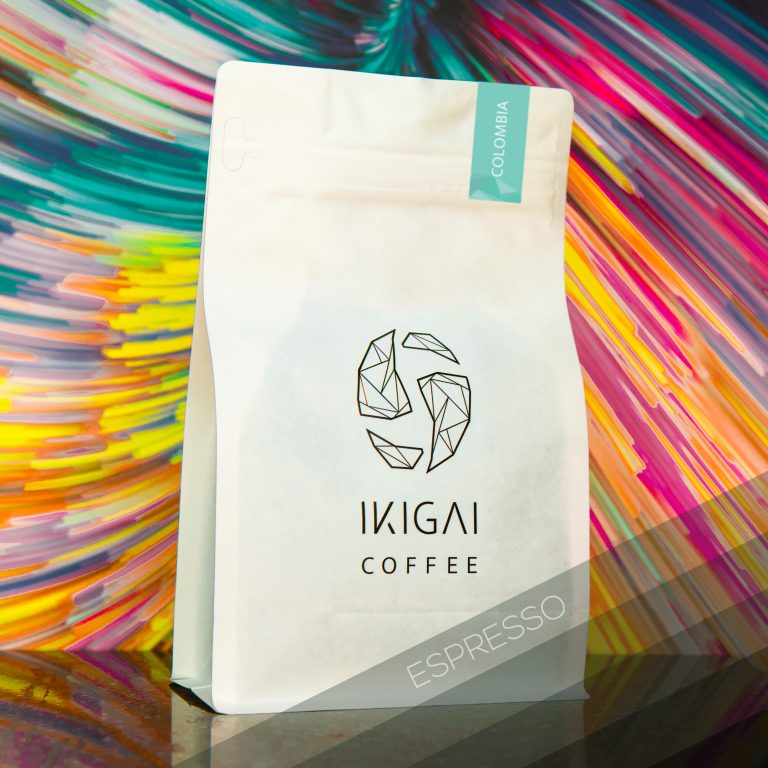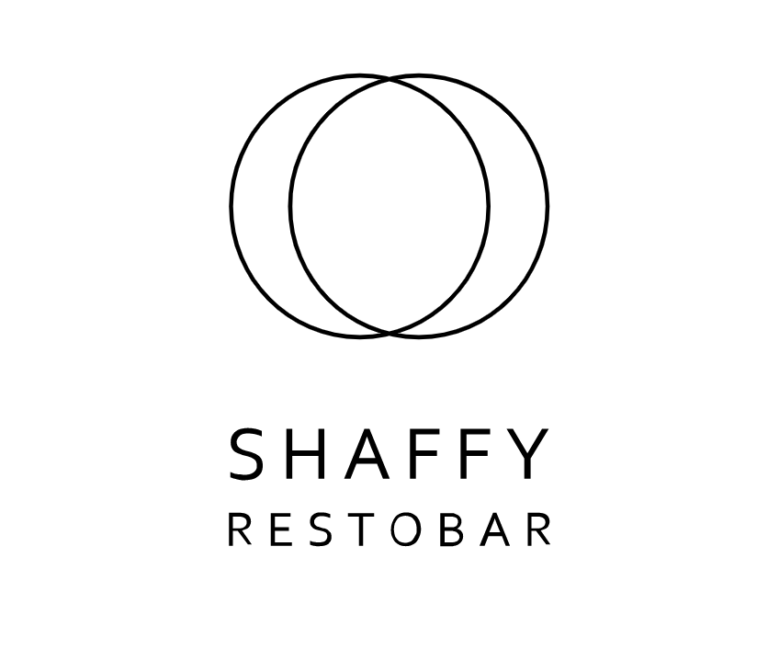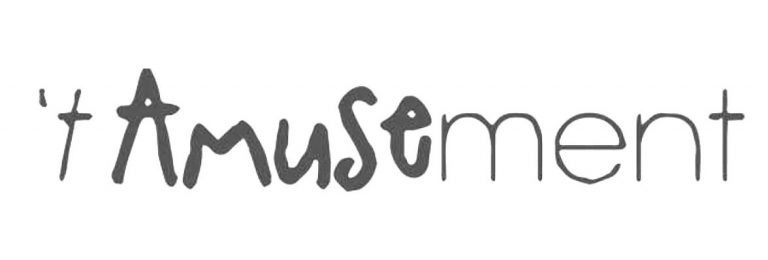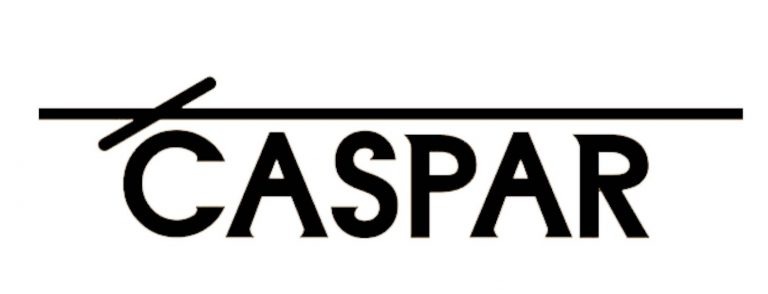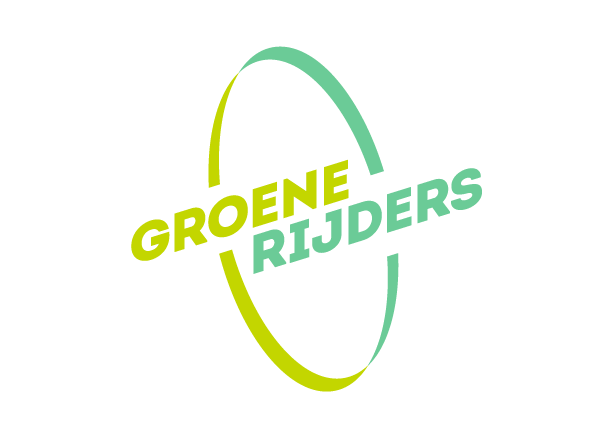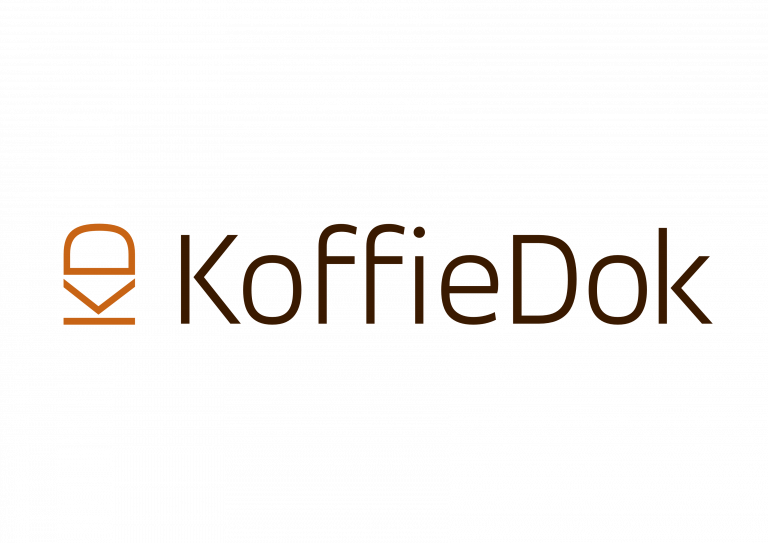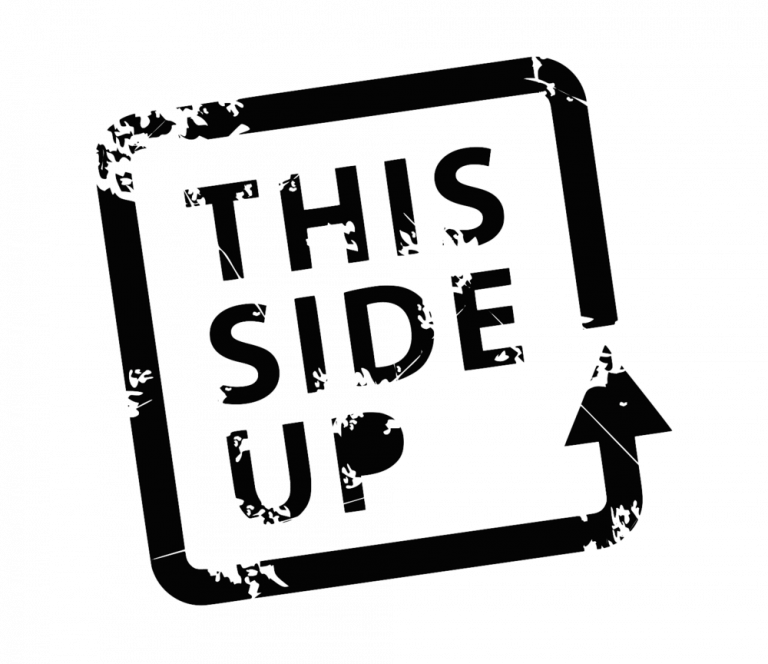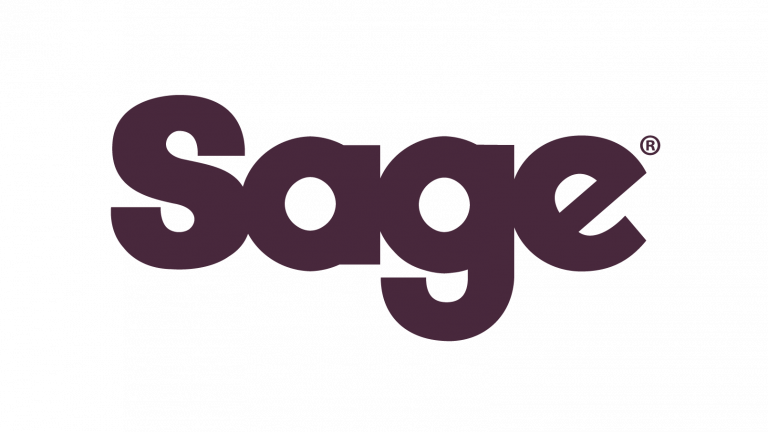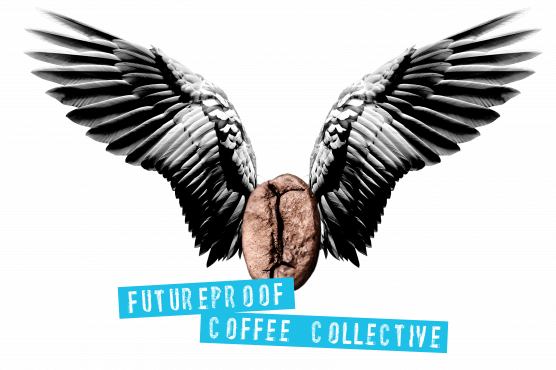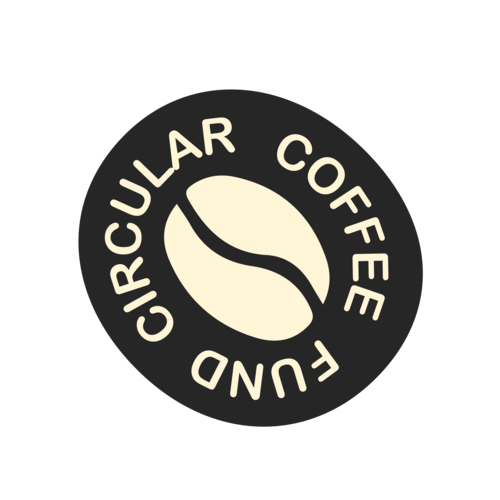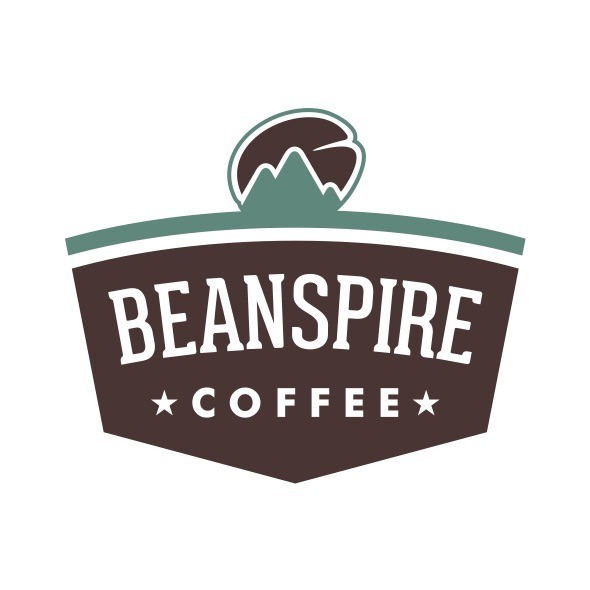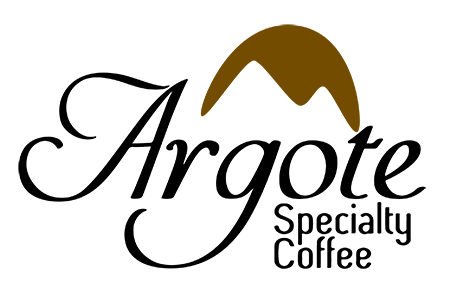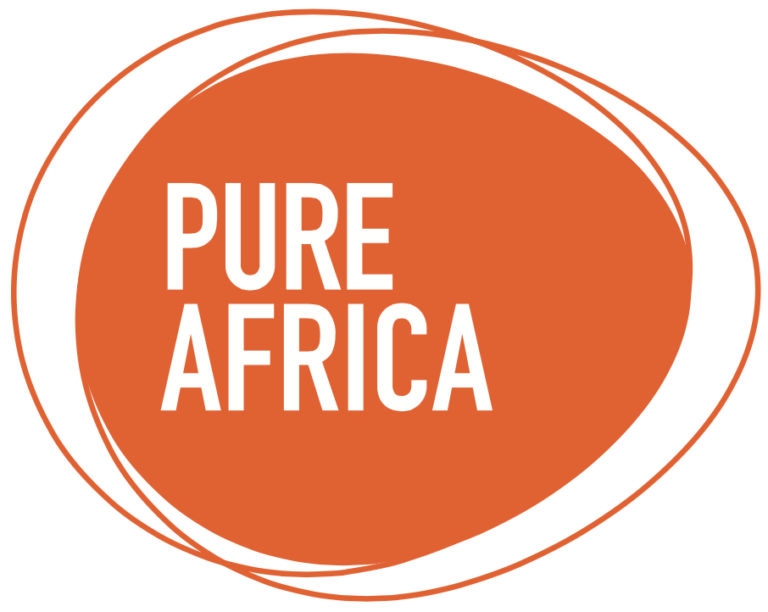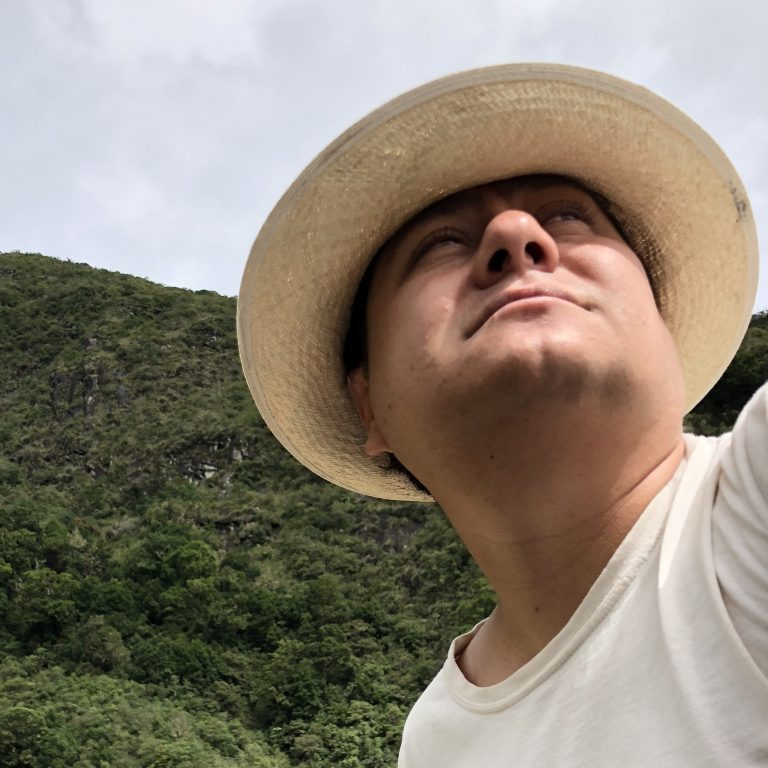
In this episode I am talking to my Colombian friend Juan Pablo Lasso Argote from Argote Specialty Coffee.
Juan Pablo (41) is a fourth generation coffee grower from the little village of Genova, Narino. He’s the son of Efrain Lasso. He studied accountancy and Business Administration at the University of Cali in Colombia and has a master’s degree in sustainability practices.
Juan Pablo is because of his education and his experience is a perfect partner to create smallholder traceability and transparency and he’s one of the first from the village of Genova to export his coffee as a solid specialty Coffee.
I personally visited Juan Pablo and stayed at his family farm in 2018, a truly unique and memorable experience.
Listen to the episode on Spotify:

Related products:
DATE
September 15, 2020
DURATION
1h 05m 31s
2 SPEAKERS
Jeroen Brugman, Juan Pablo Lasso Argote
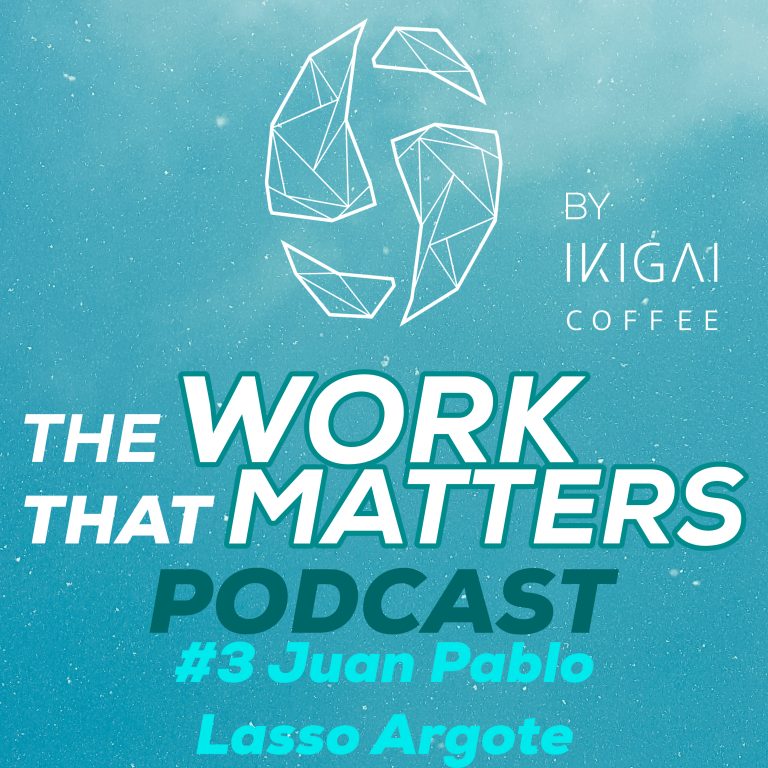
PODCAST #3 Colombia – Juan Pablo.mp3
Jeroen: [00:00:00] Welcome to the Work That Matters, podcast by IKIGAI COFFEE. My name is Jeroen Brugman and I’m your host talking to the people behind the work that matters. If you want to find out more about this episode or any other episodes, please visit www.ikigai.coffee and I hope to see you there.
Jeroen: [00:00:19] So welcome everybody again to another podcast by me. I’m Jeroen Brugman and I’m the owner of Ikigai Coffee. It’s the work that matters podcast. And I’m looking for people from my own network that actually do work that matters. Last time we spoke with I spoke with the Fuadi Pitsuwan from Thailand. The one before was Sara Morrocchi. And in this episode I have a special guest, it’s my Colombian friend, Juan Pablo Lasso Argote. And Juan Pablo is a fourth generation coffee grower from the little village of Genova, Narino, he’s 41 years old. He’s the son of Efrain Lasso, also a coffee grower. He studied accountancy and Business Administration at the University of Cali and has a master’s degree in sustainability practices. Juan Pablo is because of his education and his experience is a perfect partner for import facilitator This Side Up and for me to create smallholder traceability and transparency and he’s one of the first from the village of Genova to export his coffee as a proper specialty Coffee, he organizes a field barista trip in his home village where I, personally went to as well and had the pleasure and the honor to live in is in his house for a period of two weeks. It was there ten days,
Juan Pablo: [00:01:54] Ten days.
Jeroen: [00:01:55] To help with the coffee harvest of him and his family. So welcome, Juan Pablo Lasso Argote.
Juan Pablo: [00:02:03] Thank you Jeroen. Thank you for having me.
Jeroen: [00:02:07] Some crowd, like I will edit it in. So welcome, Juan Pablo Lasso Argote.
Juan Pablo: [00:02:13] Thank you. Yeah. It’s a pleasure to talk to you again. Always a pleasure. Thanks for having me.
Jeroen: [00:02:21] A couple of months ago, you were in Amsterdam. You’re almost locked up here.
Juan Pablo: [00:02:26] Yes, all of it for a day.
Jeroen: [00:02:30] What if you were here one more day, then it would have been. Yeah, Colombia would have closed.
Juan Pablo: [00:02:35] Yeah, I would still be there.
Jeroen: [00:02:39] Yeah. Yeah. That’s. Well it’s it’s a good thing that your,. Your back at Colombia Yeah.
Juan Pablo: [00:02:46] Just for the harvest time that we are getting in now. Yeah. And you know how is the work here in harvest time. So it would be a mess.
Jeroen: [00:03:00] Yeah. I had the pleasure of visiting you two years ago. There was a super nice experience. It’s, I still have everything fresh in my memory. I made a lot of highlights, of course, with video. Yeah. I still have to make a proper video of it, but it’s, it’s too many footage.
Juan Pablo: [00:03:19] And that’s that’s the good thing about visiting the farms and not only visiting, but doing the work that the farmers do that you can well, you can tell it first hand because you know what it feels to to do a washing, to wash the coffee. You know how it feels to to pick the coffee.
Jeroen: [00:03:45] Yeah.
Juan Pablo: [00:03:46] You know, so that’s that’s beautiful of this project.
Jeroen: [00:03:50] And it hurts. I did. Yeah. It’s, it’s before visiting you and your farm. I only knew it from the books and from the videos and then you tell people, you teach people in barista trainings and other presentations, where the coffee comes from. And I’ve literally spoken to hundreds of people and they’ve given presentations to hundreds of people not actually knowing what is going on. So that’s quite, quite awkward. Yeah. So that was quite valuable. Yeah.
Juan Pablo: [00:04:25] Yeah. And it happens in a lot of farms that they show you how the process is. But you’re not involved into the process. You’re not, you’re not you don’t have to wake up at six a.m. in the morning and go to the till pick the cherries and deal, deal with, with mosquitos and deal with the heat or deal with the rain. So it’s more like tourist, like what we are doing in our farm is involve completely, the visitors to the process itself, you know,
Jeroen: [00:05:06] How many field barista trips did you organize? And by the way, it’s being organized together with This Side Up, I think This Side Up was the main main host or you were the host, of course. But the main initiator.
Juan Pablo: [00:05:20] Yeah. That came from both of us from This Side Up and Argote. So we thought a better idea to involve the coffee, the coffee people into what we are doing, so together we thought about organizing a trip. And that’s how it was created, so we started with the first group we started in 2016 and 2017 became three two groups. And 2018 three different groups, and in 2019 two, and there is there’s been more than 30, 30 people been in our farm helping us with the whole process.
Jeroen: [00:06:18] Yeah, it’s amazing. And all coming from not just the Netherlands, but also from the other European countries.
Juan Pablo: [00:06:25] Yeah, we we have people from the Czech Republic, from England and Scotland and from different parts of Europe. Yeah. it’s funny because most of people here said that they have more friends in the Netherlands that here in Colombia. Well, you are quite a popular guy in the community here. Yeah, absolutely. You make me blush
Jeroen: [00:07:03] I make you blush next time I’m doing a video. I was thinking to do a video recording of it, but I think it’s too soon. But you make me feel sorry not for pushing it through. So, yeah, but, I was actually for this podcast and also that related to not doing a video. I had this did this hat we all we got at your place at Genova.
Juan Pablo: [00:07:32] Yes.
Jeroen: [00:07:32] You took us to a hatmaker. The hatmaker made us all some Colombian hats. Does it have a particular name or it has it just a hat.
Juan Pablo: [00:07:45] No, it’s it’s just a hat. But the material it’s called Pah, Paha Toquia. It’s it’s a material from the south of Colombia and that’s an. South of Colombia and Ecuador, it’s called like, it’s yeah, it’s like a big. You see her big leaves and they got the they got the strings from it.
Jeroen: [00:08:22] Yeah, yeah, I still have it here, so that’s quite cool. Yeah, I’m still it’s still hangs in my office.
Juan Pablo: [00:08:30] Nice is a remains a reminder.
Jeroen: [00:08:33] As a reminder. Yeah. It’s a good souvenir. Absolutely.
Juan Pablo: [00:08:36] Yeah. It’s how you suffer.
Jeroen: [00:08:39] Yeah. I was suffering. Yeah. But yeah to to be as I mentioned before, it was a really special experience. I can advise anyone to, to visit. Either way, your farm or just a coffee farm in general and to join in the coffee processing. In the coffee harvesting, it’s, it’s a lot of hard work. And when I got back in the Netherlands, I tripled my respect for the products and I quadrupled my respect for the coffee growers and farmers. And it made me a better person.
Juan Pablo: [00:09:16] And I think that’s the best way to do now, the the coffee process itself, because it’s not all muscles, but mostly everyone thinks that the the the import the most important part is the picking. But they don’t see the other part that is that depulping the washing process, all this kind of stuff that you just do if you are a farmer.
Jeroen: [00:09:52] Or the fermentation experiments that some, like young roasters from Rotterdam, want to do, Mr. Jelle van Rossum.. That he was experimenting while we were picking, I believe it was a 36 hour fermentation. Yeah. Out of forty eight. And another one.
Juan Pablo: [00:10:17] It was forty eight and a sixty six hour sixty six.
Jeroen: [00:10:21] OK, there was one fermentation that we we executed that made us stay up until really late. And that is the example of of course it all starts with an idea and then you start experimenting. But I can definitely imagine in this term there is a communication going back and forth within, between you and Jelle and the rest. But in other cases, then it might happen that there’s a new trend popping up of a specialty coffee fermentation technique that pushes coffee farmers to produce, to do this extra intensive fermentation.
Juan Pablo: [00:11:05] Yeah, of course. That’s right. That’s why you realizes that that there are things that we can do and there are things that we cannot use.
Jeroen: [00:11:15] Really. Yeah. He has it really clear and he pays for every everything. Right.
Juan Pablo: [00:11:22] Yeah, yeah. Yeah sure. And and like that we are trying to create more relationships like the one that my father has with Jelle, direct relationships that the roaster can communicate directly with the farmer and between both of them they could suggest changes or they could suggest different process that the farmer are willing to do and could do with the with the things that he has in the in the farm. And like that they could get a very good coffee.
Jeroen: [00:12:05] Yeah. It’s it is interesting because the connections between, of course, for example, Jelle and your father and you, that is so close and between the rest of the community and and you and your village as well. Yeah. But yet Jelle in particular. Yeah. That is really an example of how you can actually build a long term relationship.
Juan Pablo: [00:12:37] Exactly.
Jeroen: [00:12:38] If I’m correct, he’s also sharing the risk. Right. So if a fermentation goes wrong, he covers the cost of it?
Juan Pablo: [00:12:46] Yes. Yes. He’s he’s sharing the risk. But the one thing is that we are not doing the fermentation process or the different process blind. We are always super are supported in maybe other farms or in other countries.
Juan Pablo: [00:13:05] But we follow we follow some standards, but we adapt it to our climate and our process. Yeah. For instance, last week, last year, sorry, we did a kind of Kenyan fermentation process, but we adapted it to our our farms.
Jeroen: [00:13:33] Yeah. And what is it what does it look like, a Kenyan fermentation that you adapted to your farm, is it?
Juan Pablo: [00:13:42] Well, we actually we did we did like we did two different fermentation process last year. for for Jelle. We did one that we called cherry fermentation is that we left the the coffee fermenting in cherry for two forty two hours.
Jeroen: [00:14:03] Forty two hours?
Juan Pablo: [00:14:05] Ah, no sorry 24 hours 24 hours ago then we depulped it. And we let it ferment for another 18, 18 hours, and then we wash it and, we got a beautiful cherry fermentation process. It was it has the. A lot of things from naturals. But with the body of a washed, it was very rare.
Jeroen: [00:14:38] It’s kind of the both depth of the fermentations in one.
Juan Pablo: [00:14:44] Yes, yes. But like, well, we we don’t have these high temperatures. The fermentation is the fermentation process is more extensive, slower, yeah,
Jeroen: [00:15:01] Slow fermentation. For the people for the people that are listening, that have never heard of coffee fermenting, just to be sure, after the picking of, of course, in terms of specialty coffee, you need to pick the ripe cherries a riper fruit, is a ripe or pit, or a riper bean. And then as soon as the coffee is being picked, then the fermentation, the processing of the beans starts and it’s more than half of the eventual taste of the coffee that is being determined by the process. So there’s a natural process, there’s a semi wash process and there’s a a wash process. And the process that Juan Pablo just described here is there’s a kind of in-between of those a little bit of a natural process. But before it becomes a natural, they take it out and then they process it and then it becomes a wash coffee, right?
Juan Pablo: [00:15:56] Yeah. Yeah. Because so to get a natural in our farm, you could need you need two weeks of drying process.
Jeroen: [00:16:05] You need a lot of. Yeah. Acres of concrete or hanging beds and storage.
Juan Pablo: [00:16:14] It’s, it’s, we do naturals but the small scale we don’t like, we don’t get, we don’t get more than two hundred kilos of naturals.
Jeroen: [00:16:26] We looked at the machine then at the science center what was the name of it?
Juan Pablo: [00:16:34] Oh yeah, Technicafe.
Jeroen: [00:16:36] Technicafe. Yeah. There was this machine to, to get to, to speeden up the drying process of the naturals.
Juan Pablo: [00:16:44] Yeah. Well it’s very expensive.
Jeroen: [00:16:49] Yeah. Of course. The machinery coffee processing machinery. Yeah.
Juan Pablo: [00:16:56] Maybe in 10 years or 20.
Jeroen: [00:16:59] Yeah. Well let’s all grow together and then see if there’s some investments that that are possible there. So this year’s harvest you, you are starting to harvest you, you have started to harvest.
Juan Pablo: [00:17:18] Yeah. We are the main harvest. We are going to start next week. So it’s where all the hard work comes and we’re going to start also with a different process. We’re going to add another different process to to our to our coffee. Yeah. So for Jelle, he asked us if we could do some different things. So we we were researching and we we figured that we could do some lactic fermentation and we’re going to try to do it. So we have to control to it has to be a more controlled process. Yeah. So yeah we we’re going for it.
Jeroen: [00:18:15] AInteresting, what is, what does that look like? A lactic Fermentation of coffee?
Juan Pablo: [00:18:21] Well electric fermentation is to it’s well you know that when it comes to fermentations there are different kinds of fermentation that it could produce. So one of them, one of two of the most familiar are the alcoholic fermentation and the lactic sfermentation that are made with different bacteria or microorganisms. So for the lactic fermentation, we’re go we’re going to we’re going to we’re going.
Jeroen: [00:18:59] To raise the temperature as well or?
Juan Pablo: [00:19:02] No, we’re going to encourage the production of the lactic acid microorganism the microorganisms that produces the lactic fermentation. So like that, we we can assure that the thing that’s happening inside the tanks, it’s a lactic fermentation.
Jeroen: [00:19:25] OK, that is interesting,
Juan Pablo: [00:19:27] Yeah, yeah, this this thing is actually very technical, but very interesting.
Jeroen: [00:19:35] It is. It’s for you. It’s going to be and for Jelle of course, as well for Jelle and you is going to be like perhaps somewhat like a marketing to to put more depth into your collaboration and to show other people of what the possibilities are.
Juan Pablo: [00:19:56] Yeah. , for instance,
Jeroen: [00:19:57] To expand the horizon for that,
Juan Pablo: [00:19:59] For instance, with the with the naturals. Yeah. We begin for the first naturals that we did. We did it like three years ago and it was a very, very small batch of naturals, like two to like 70 kilos of of of naturals. But with that and with that knowledge and with that experience now we have three different farmers in our community doing naturals for three different roasters in Europe. So we have one farmer doing naturals from for one roaster in in France, in France know we have another farmer doing naturals for one roaster in Czech Republic. And my father and I are doing naturals for four Jelle, Rotterdam from Shokunin coffee. So.
Jeroen: [00:21:04] Shokunin coffee.
Juan Pablo: [00:21:05] Yeah. So so those you’re not going to find those naturals and in another place. So that just would put those farmers. Yeah.
Jeroen: [00:21:17] Yeah. Nice.
Juan Pablo: [00:21:18] And also that help us with these new experiments that we are, we’re doing this new process. If they goes well we can expand it to other farmers and to other roasters in Europe.
Jeroen: [00:21:34] The possibilities are endless.
Juan Pablo: [00:21:36] Oh yes.
Jeroen: [00:21:36] I can imagine we’re talking about Jelle van Rossum, a roaster from Rotterdam, the owner of Shokunin Coffee. And if anyone wants to try our go to coffee, go to, I think, to Shokunin coffee, coffee, Shokunin.Coffee or otherwise. tye in shokunin. I think it’s an artisanal person in Japanese. He’s doing a great job. Absolutely. And you guys are doing a great job. So in terms of the amount of farmers, so forth and not two thousand sixteen. You started with that.
Juan Pablo: [00:22:17] We started with our first exportation was in 2000 to tell the crop of 2014. No 2015, the class of 2015. We started with my father.
Jeroen: [00:22:32] Exactly. So your father was the first to export this coffee? Yes. How how did that. How was that initiation process or where did it start? So you travelled to to Europe and it was.
Juan Pablo: [00:22:45] No, no, no, no. We said, well, my father my father took control off of the farm like ten years ago because before it was my grandfather who was administrating the farm. So my father took control. Yeah. Like ten, maybe 10, 12 or 15 years ago. But but we he started to to realise that the selling the the the coffee to the local market, it wasn’t enough for for a living now. And my father only has two hectares, is not a big farmer there. And with 2 hectares with the local prices it’s very hard to. To live so like in like in 2013, we started to I started to help him looking for another for another project. So at the end of 2013, it came that we started roasting our coffee.
Jeroen: [00:24:02] Together with Andres?
Juan Pablo: [00:24:02] No we don’t know with the roaster, back in Genova about with the rostering, with one of the one of the farmers that is working with us. He’s also a roaster, a roaster for for the school. You’ll remember the school.
Jeroen: [00:24:20] Yeah,
Juan Pablo: [00:24:21] They have a roasting.
Jeroen: [00:24:23] Quality lab.
Juan Pablo: [00:24:23] Yeah, yeah, yeah. Absolutely. We start we start roasting our coffee there. So I started selling it in the city. So one of those bags that I saw that I selled, that I sold in the city and ane of those bags goes his way to went to to Europe. Through a friend of mine, a friend of mine live In the Netherlands. Yeah, so she she she got one of their bags of coffee and she said, Oh, I have a friend that works with coffee and that friend was Lennart. Yeah. So Lennart cupped the coffee that we roasted and he thought that the coffee may have some potential because at that time we didn’t know we were working with specialty coffee. We just work with regular the regular coffee for us. But the good thing is that we always treated it like a specialty.
Jeroen: [00:25:36] Yeah.
Juan Pablo: [00:25:38] We just have to adjust some some things in picking and another process. Yeah, so this bag went to the this coffee, went to to to the Netherlands. And Lennart, like three months after after he he cupped it, he came to Colombia and we met here. Yeah, we met here and he went to the farm. It was October 2014. He went to the farm in October. There is no harvest. There is no crop. Just just the plantations there. And he saw our family, he saw how we worked. He saw our plantation. And he he fell in love with our coffee, the just he had. He had just one one one thing he said the one thing that I asked you is that you are the you have to be the exporters. I don’t want I don’t want anymore intermediaries, so.
Jeroen: [00:26:54] So to shorten the supply chain, the value chain,
Juan Pablo: [00:26:59] So we so we started the company and we we became exporters, that at that time it was not easy here in Colombia. Coffee exporters. Yeah. And we started the relationship like that with the with Lennart. The first coffee that we we exported was my father, my father’s coffee.
Jeroen: [00:27:26] One question. Why was it hard to start an coffee exporting company back then?
Juan Pablo: [00:27:31] Because to export coffee here, you have to ask for permission to the National Federation of Coffee.
Jeroen: [00:27:38] Yes, Federacion do coffee,
Juan Pablo: [00:27:40] De cafeteras, Federacion de cafeteras. And at that time the regulations were too strict for exporting coffee. So there were a lot of paperwork, a lot of a lot of things that you have to deal with, bureaucracy. So it wasn’t easy. It was and it wasn’t easy. And although they were, so so little, so few little exporters that. That it was practically impossible for a farmer became an exporter. Nowadays the things are getting easier for us.
Jeroen: [00:28:28] It’s more open right?
Juan Pablo: [00:28:29] Yeah, it’s a lot more open, yeah. You know,
Jeroen: [00:28:32] There is a lot of families exporting their coffee today.
Juan Pablo: [00:28:35] There is one thing where you can notice that, you know, when we send the bags to to Europe, all the bags have a number. That is the number of export of the exporter. Our number is said was is seven eight nine seven hundred eighty nine (789).
Jeroen: [00:28:57] Yes.
Juan Pablo: [00:28:58] So in all these years until 2015 that we get the the, the code, the number, it was only seven hundred eighty nine exporters, allowed for the National Federation. And now since 2015 to 2020, they’ve been more than two thousand exporters. So in the past five years, one thousand three hundred are they are one thousand three hundred new coffee exporters in Colombia.
Jeroen: [00:29:37] But is it of course, for you and for other exporters and other smallholder farmers? It’s it’s great. That’s a good thing.
Juan Pablo: [00:29:44] Yeah.
Jeroen: [00:29:45] But I can also imagine for the federation, they are losing because the federation is a government owned federation, right?
Juan Pablo: [00:29:56] No, no, no. It’s not the government. That’s the thing that it’s private.
Jeroen: [00:30:03] But what what do they do against it? Because for them, it’s a it’s a big loss of profit.
Juan Pablo: [00:30:10] No, it’s not. Because it’s not because they are not focused in specialty. They are focused on commodity, large amounts of coffee. So they are ready have a future contract signed. So. For, for them, we are like a tiny ant on the foot,
Jeroen: [00:30:36] So the thirteen hundred exporters that were added to the list, those are all small specialty exporters?
Juan Pablo: [00:30:43] Most of the most of them have to be. But, you know, to become to become a coffee exporter, you don’t have to be a farmer. Anyone can become an exporter.
Jeroen: [00:30:56] Yeah. OK, that is interesting.
Juan Pablo: [00:31:00] Yeah, but yeah, but but the sad thing is that the farmers, they are not becoming exporters because as I told you, to become exporter. You have to deal with bureaucracy. You have to deal with the paperwork. You have to deal with and exchange terms with inco terms with all these kind of things. So the farmers, most of the farmers doesn’t have the the knowledge to to do it. So there they are, a lot of people, they could be from the coffee industry, but they’re not coffee farmers that are becoming exporters, you know,
Jeroen: [00:31:44] And in your terms, you are the exporter in the village of Genova and you found the direct connection to the European market. Are you shipping anywhere else than Europe as well or not?
Juan Pablo: [00:31:56] No, no. We are just shipping to to lennart because I, I would never we have like like the same vision of what what we want to do. So we want we want to do to to do the chain shorter than we are. We’re not looking for the self benefit but the community benefit. So.
Jeroen: [00:32:27] More inclusive.
Juan Pablo: [00:32:29] Yeah. So it’s it’s not easy to find someone with that vision to work with.
Jeroen: [00:32:38] In terms of the coffee pricing. Of course, you collaborate now closely with This Side Up, This Side Up buys your your coffee and the federation before 2014-15. You mentioned the federation bought the coffee and there was the traditional trade and you got paid commodity prices for every pound of coffee. Does it for you? Is the impact. You know, of course, I know the answer to this question already, but I’ve got to ask it anyway. Is good for the listeners and the consumers to know. So does it actually make a lot of impact for you as a coffee farmer to trade more directly to small importers, that you’re more connected to the markets.
Juan Pablo: [00:33:31] Yeah, yeah, yeah, of course. So in terms of income, you can you can find that the income of the farmers that are working with us that are increasing between 60, I think between 60 and 80 percent. And at some point, depending depending to the currency exchange, it could grow to one hundred percent more than the the coffee, the federation price, coffee prices. So it’s a real and if we are doing more direct them more direct, we find more direct consumers for for the coffee of the farmers. If we could do more direct relationships between the farmers and and roasters. Well, I think we we could have room for more farmers and that’s our goal. Our main goal is to grow and to reach out to as many farmers as we can.
Jeroen: [00:34:46] Yeah. And I was there. I seriously cannot see why not. I mean, the quality you deliver is it’s really high quality standards and it can all be standardized. All the quality protocols can be standardized. And.
Juan Pablo: [00:35:03] Yeah,
Jeroen: [00:35:04] We talked about scaling up coffee production in the village of Genova. I believe currently there’s one container, so around eighteen thousand eighteen tonnes being exported from Genova, is that correct?
Juan Pablo: [00:35:18] And it’s nine nine tonnes. Nine tons and tons of coffee. Yes.
Jeroen: [00:35:26] Ok, nine tons. And that is all with registered of course with the Mr. Accountant himself doing all the administration and registration of all the coffee. But I believe it’s the possibility is to do one hundred and fifty tonnes in this village alone. And yeah of course for a small roaster like me or any small roaster in the Netherlands, it sounds like a huge amount. But to in the larger coffee industry, that is nothing is it’s absolutely that’s nothing. But it is not.
Juan Pablo: [00:36:06] You know, what’s. You know what, it’s funny that at the beginning, when we were starting most of the most of the farmers which we work with now, they didn’t believe in that. This could we could do this. They were not as enthusiastic. Yeah. We found for the second exportation we were trying to because for the second exportation, he asked us for more coffee. So we have to find another partner to export to export his coffee. And we were asking for like three or four farmers and they said, no, they were not convinced about this. And now we have like a line of farmers waiting.
Jeroen: [00:37:04] Everybody’s in line.Yeah.
Juan Pablo: [00:37:06] Yeah.
Jeroen: [00:37:07] So what is it what was it back then that the farmers were hesitant to join because your father and you were the first. And after that there was.
Juan Pablo: [00:37:18] Yeah, because. Leonardo was the first one that said, yes,
Jeroen: [00:37:25] But why did the rest not follow? I mean, it is possibilities right?
Juan Pablo: [00:37:31] Because we they needed to change the way to pick, first of all. So we we need we needed to change the way of picking the cherries. So they were hesitating and saying, no, it’s not worth it. I’m going to lose coffee, I’m going to lose money. So they don’t see a long term in that business. They don’t see it as a business model. They just saw it as something they have to do to make sure.
Jeroen: [00:38:06] They saw it as extra work.
Juan Pablo: [00:38:08] Yeah, So now but Leonardo, he saw it as a business model and he said, OK, yes, I’m going for it. Just tell me what to do and I’ll do it. So and..
Jeroen: [00:38:23] Leonardo’s coffee did well! I, I leveraged his coffee for a while and Milou Savelkoul won two competitions with his coffee and his competition is his coffee did great. He scored it was scored by Q-Graders, superhigh reviews. And every time an industry professional laid his or her tongue on that coffee was a positive outcome. There was. It was nice.
Juan Pablo: [00:38:58] Yeah, yeah, yeah.
Jeroen: [00:39:00] It’s an awkward description of that.
Juan Pablo: [00:39:06] So he now he’s also exporting, he’s also doing naturals because he says, I will do anything you told me to do. So he was the first one. And then we started with the we with the with the pickers because our pickers also they have their own small pieces of land. So we’re trying to involve them in the whole process. So the way they picked in our in our farm, they picked in their farms. So we see potential also in their coffees. So we bought them. And actually, they’re , they’re doing also great in there, the in the cuppings. So they have a.
Jeroen: [00:39:55] I remember I remember you telling me back then that the pickers, mainly Munoz family, that they they pick of course, they do a lot of selective picking. So picking all the ripe cherries. And it’s I made some some videos of it. I’ll post it in the in the notes, the speed they pick. It’s insane. Yes. Super super fast, I tried to do it like it’s like, like, like my son is playing on his Nintendo switch is super fast. So movement is really, really impressive to see. But I remember you mentioning that you integrated the new quality protocols of picking the right cherries. And so they they all picked ripe cherries. Of course, they were rewarded more for for higher quality, and they picked less, of course. And then they they were asked or they went to their other to other farms to pick coffee. That were not connected then. That were not trading directly in specialty coffee. And they were continuing this selective picking and they were the owners of the land were looking at it like, what are they doing? Why are you doing. Please strip it. Strip it!.
Juan Pablo: [00:41:07] Yeah, that’s fun. That’s that’s because they’re there now. They’re used to one way to pick and they know that like that they they could it’s better for for the plant. And also is better for their, for their income, because, you know, all the green coffees and overripe coffees that they used to pick, when you wash the coffee, that goes like defects. So what you can what you do with those is the sell it with an even lower price. So you’re losing money there. Yeah. So they they understand. The good thing is that now they understand that. So they they they said that they can obtain more benefit of their trees doing a correct picking.
Jeroen: [00:42:03] You know, you you are of course involved in a lot of cup tastings and you’ve cupped a lot of coffees before. The pickers. Do they also get to cup their coffees so that they can actually taste the difference between the ripe cherries and their incentive is they are making more money.
Juan Pablo: [00:42:26] When when we have when we have the few barista projects, we do cuppings with with with the people that comes with our guests and we involve the pickers that wanted to in in those cupping. And they they do they well they used to to drink the regular, the normal coffee with lots of sugar in it and and roasted till it burns. So when they, when they cupped a coffee that has been well roasted, they do notice the, the change the and they, the good thing is that they feel proud of it. And every time for instance, every time I come I come to the I go to the Netherlands and I bring a bag of coffee. That’s what roaster gave me to to show to the to the farmer that this is the roast. They are their coffee trophy. Yeah. They, they are super proud of it. They’re, they show it like a trophy.
Jeroen: [00:43:39] Yeah. Yeah. That’s cool. That’s nice. Is there a good local coffee community. Of course not really. And Genova yet I believe. But in the in in Colombia in general.
Juan Pablo: [00:43:52] Yes but but you know in Genova it is, it is there is one brand.
Jeroen: [00:44:00] It should actually if you think of it. Yeah.
Juan Pablo: [00:44:04] It’s there is there there are like two brands there, one brand of the school and another brand from another farmer that they’re trying to to initiate like a specialty coffee roaster in in in Genova. So there are.
Jeroen: [00:44:23] Nice.
Juan Pablo: [00:44:24] And in the rest of Colombia, yes, it’s a it’s a born industry, if you can find some some specialty coffee bars and they they do they trying to experiment different different varieties, also different than the different processes. But they’re more focused in that in in the differentiation in for varieties and for process.
Jeroen: [00:45:03] Mainly Colombian coffees they serve?
Juan Pablo: [00:45:07] Yeah. Yeah. Because you can’t you can’t import coffees from other countries. It’s not allowed. So you have to they, well, the roasters here are on the coffee industry is more centered in how much is your cup score and more than what we are trying to do. That is we are trying to. Well the quality is important, but it’s also important the history to be behind that cup of coffee that you’re drinking. Yeah, the story is not just just quality. The quality is a very important part, but it is also the history behind the coffee. So you can see the families that they go. That’s why for us is very important that you have 100 percent traceability of your coffee, you know, who is the farmer? And you can make it you can give a face to that. You know
Jeroen: [00:46:18] That is a nice philosophy. I think you’re a you’re on the right path there and not determining coffee only on quality because quality is not completely sustainable. It can only sustain if if there’s a direct connection and if there’s there’s a face. Of course, that is what. What counts even more, probably.
Juan Pablo: [00:46:43] Yeah,
Jeroen: [00:46:44] Yeah, yeah, I can go in a bit deeper about, is the feeling I have when when I taste Coffey’s that have a high quality or that I taste a coffee that has a good quality but has a better story. I tend to taste or I tend to have a preference and I can do this blind. I actually have it. I’ve had it several occasions, though, and I tend to have a preference of blind preference for coffees that have a better story, a bit more transparency behind the quality. That is actually my my first experience. One of my first experiences with with Leonard with this setup I had I used to work at a large roastery, it was part of UCC the Ueashima Coffee Company, one of the largest coffee roasters in the world doing private labels, was not quite a sexy company, just the way it was. But I had a sexy function there. I could do whatever I wanted and learn and study and try to build a cool yeah sub label. But for the last couple around and last coffee selection in my in my period there, I selected 40 coffees from several importers and eight of those coffees were from this set up and it was a blind cupping. I was supposed to select three or four new coffees and my number one, two seven were all coffees by This Side Up. And that was so strange. And then I dove deeper into it and I noticed that the big difference between all the coffees is the complete traceability and the complete transparency and the amount of energy that is being put in by everyone connected trying to make a better quality coffee, try to make the circumstances better for all and more in a in a sharing way and not in that in a financial way, of course, is is there’s money to be earned. But this was. Yeah. Spiritual sounds kind of silly as a bad reputation of voodoo and woa. But I do believe in that. Yeah. And yeah. And it has a Kaizen taste, so it continuously improves. Yeah.
Juan Pablo: [00:49:28] And also because for instance in our process. Most of the farmers are involved in the whole process, not just they they don’t just. Bring us the coffee, the parchment, coffee and so on and go away. They present. They also help us in the hulling process, in the selection of the defects selection at the site, selection in the packaging. They they. They are like taking care of their coffee in the entire process of the of of of production of the green coffee. So when it’s funny, because when when we are sorting the defects and they said, OK, this coffee is this, it’s from one of the farmers. So that farmer is taking care of it. So he says, OK, watch out, watch out, watch out. Yeah, it’s fine.
Jeroen: [00:50:43] Now, you also make Cascara.
Juan Pablo: [00:50:47] Oh, yeah,
Jeroen: [00:50:48] And the cascara that comes from Geneva is by far currently, by far the best I have tasted. I’ve had several cascaras from from Myanmar, from Thailand, from Ethiopia, from from Panama. And your cascara is still one of the best I have tasted. Can you explain to me, of course, first of all, for the for the the the people listening, that don’t know what Cascara is. Can you explain what what it is?
Juan Pablo: [00:51:25] The cascara is the pulp of the of the coffee is the peel that covers the the seed. So when in the process of the coffee, you have to depulp depulp it. We have a machine that separates the the pulp from the skin, from the skin in the pulp, from the the seed. So the seed goes to the fermentation tanks and the pulp. Normally it goes to the, to the field to the to. We use it to refertilize. Exactly. So we find out. Lennart told us also that we could do something else with that Cascara. We could use it like, like Tea for tea making. So we start to research, we start to do some tests, how to treat it to to do to do a good Cascara t so we after after several error error mistakes in the process, we find out, yeah, we find our point and we now we have a we have a standardized process for the cascara too. So what we do is the first thing we wash the coffee before we depulp it so we can eliminate the the microorganisms that comes with the dirt and everything that comes with the coffee. And then we put it to dry in the patio. We have to dry it in the importunate for two reasons, because it has to be tried as fast as possible to avoid because it has a lot of humidity in it.
Juan Pablo: [00:53:33] So to avoid. Fungus growing. It has to be.
Jeroen: [00:53:39] mycoToxins,
Juan Pablo: [00:53:40] mycoToxins, it has to be dry, that’s as far as possible. And and also because of the space, it requires a lot of space to dry Cascara. So, yeah, we we dry it in the patio on the patio that we use. It doesn’t have it’s in the terrace. So you don’t you’re going to find dogs or chickens or or or animals.
Jeroen: [00:54:11] It’s a clean environment.
Juan Pablo: [00:54:13] Yeah. It’s a clean environment. And you have to be very it’s not just let it dry. You have to constantly removing it and mixing it so it dries even keep it in motion. Yeah. Keep it in motion. So it takes its if the weather is good it could take two days to dry a batch. But in those two days you have to be constantly taking care of it constantly. It’s not easy actually. It’s not easy to do it, but it’s, it’s, it’s nice.
Jeroen: [00:54:53] You know, that’s an interesting byproduct. I don’t know the current status of Cascara, but maybe you know that I know a year or two years ago it was classified as coffee. So everything from the coffee tree was classified as coffee; the coffee, flowers or coffee roots, the leaves everything was classified as coffee. And then the the cascara was being exported more and more often. And then it got the label of novelty food, novelty food first has to go through a process of. Yeah. Of scientific research to declare its safety to human health. And it’s not allowed into any food chains. And the bad part is so many smallholders. Of course there’s there’s a big risk in mycotoxins, but for a lot of coffee farmers, if that process can be standardized, there’s an extra product they can they can sell, they can make more revenue. And that is that is a positive thing. But yeah.
Juan Pablo: [00:55:59] Yeah. So we’re we’re trying to do the same with cascara that we’re doing with with coffee. So we’re trying to involve more farmers that have the the possibility to to have a clean space to to dry it.
Jeroen: [00:56:20] Yeah. And is the results, the results are quite good, right.
Juan Pablo: [00:56:24] Yeah.
Jeroen: [00:56:25] Everybody who. Yeah. It’s, it’s not difficult, it just takes hard work, just as you mentioned, just keep on circulating it to keep on, keep it in motion. Keep it dry.
Juan Pablo: [00:56:35] Yes.
Jeroen: [00:56:35] You know.
Juan Pablo: [00:56:36] Yeah. Yeah. And if it rains you have to cover it. Yeah. Yeah. If it rains for five minutes and five minutes later uncover it
Jeroen: [00:56:51] It’s also known as a superfood, coffee in general is known as a superfood. But Cascara and the coffee fruit, there’s so many antioxidants, polyphenols inside of it and it’s just like.
Juan Pablo: [00:57:05] A lot of fibers.
Jeroen: [00:57:07] There’s three times as many fibers in an cascara them than there is in wheat.
Juan Pablo: [00:57:13] And it has less coffee, coffee, coffee, less caffeine.
Jeroen: [00:57:19] Yeah, less caffeine, a bit less caffeine. Yeah. And it’s it’s quite interesting. It’s been said that you can actually bake a piece of bread of Cascara. Yeah. Because of the fiber fiber rich content. So it’s, it’s worth an experiment. Never tried it yet but who knows. Who knows. And something else. So Amsterdamse meisjes.
Juan Pablo: [00:57:43] Yes. Finally there I am single.
Jeroen: [00:57:49] So before this podcast, I didn’t record that. I said to Juan Pablo, we’re going to talk about Amsterdamse meisjes and what is Amsterdamse meisjes.What is it? And then I said Amsterdam girls, oh yes, yes. Let’s talk about the Amsterdamse meisjes. That is a nice thing. So yeah, of course, you had a visit to Amsterdam a couple of months ago. You did a tour with with Lennart and some other guys involved to some roasters just to visit and connect and share knowledge, share ideas and just to socialize.
Juan Pablo: [00:58:31] Yeah. And say hi to old friends and.
Jeroen: [00:58:33] Say hi to old friends. But you kept on looking away for Amsterdamse meisjes man.
Juan Pablo: [00:58:43] But I have to I have to go back because my my flight is opened and my my flight back to talk to came back. I have to purchase another flight.
Jeroen: [00:58:56] So so that you can so you get a voucher.
Juan Pablo: [00:58:59] Yeah, so I got a voucher, so I have a flight, so I have to wait until everything’s everything’s more normal. Yeah, I have to go because I can’t waste that that voucher.
Jeroen: [00:59:18] Yeah, that’s a good thing. How long is it valid, the voucher.
Juan Pablo: [00:59:25] Well, I don’t know. The last the last e-mail that I got, they said I have to use it before November, but it could change according to the to the situation. Yeah. Yeah. So I don’t know, maybe I have to go in the in the last two weeks of October or if it goes further, maybe January when my coffee is there. It would be great that I could go to to promote our.
Jeroen: [01:00:00] New coffee harvest to make another round. Yeah, alright. Well, it would be nice to have you over again. You’re more than welcome.
Juan Pablo: [01:00:14] Thank you. Yeah. Last time we couldn’t meet much, but also because I was with, remember, I was with this cough.
Jeroen: [01:00:25] Yeah, yeah, yeah. We all thought you had Corona. But you were tested and there was nothing wrong.
Juan Pablo: [01:00:34] Yeah. I testes I was tested. when I came back to, to Colombia. I had to, to be in my room for two weeks and then I got a test and then another 10 weeks another ten days until the result comes. Yeah. And yeah they said no you don’t have anything, you just have a pretty rough cough.
Jeroen: [01:01:01] It was a rough cough really.
Juan Pablo: [01:01:03] Yeah it was. Yeah.
Jeroen: [01:01:05] Well you’re doing fine now, right. You sound a lot healthier.
Juan Pablo: [01:01:10] Yeah, of course. I’m back. Back again.
Jeroen: [01:01:15] Yeah. That’s good. Well, Juan Pablo I think we, we we’re going to wrap it up.
Juan Pablo: [01:01:24] Ok,
Jeroen: [01:01:26] It’s been nice talking to you again,
Juan Pablo: [01:01:28] Were you nervous this time?
Jeroen: [01:01:31] Super nervous. Yeah, no, no, not nervous at all. I do find it because it is a new thing, those podcasts. I am enjoying this so much. Yeah. It’s. And it’s talking to you, of course, as I mentioned I think before the podcast and talking to Fuadi and to Sara, we discussed things quite often and we discuss the the elephant in the room quite often, but we never find a chance to share that with the regular consumer. And we can never really transfer the mistakes that are being made or the the problems that are actually really appearing in our face constantly. So I really hope that this, of course, I hope is executed. It’s a delay of execution or what is it is a delay of disappointment. That is what hope is. I’m pretty sure that’s a better that’s a lot better that this might add value to that.
Juan Pablo: [01:02:45] Yeah. So, yeah, yeah, sure. And also because I’ve seen that there is a lot of people that’s now that’s looking for podcasts, I’m hearing hearing things in podcasts.
Jeroen: [01:03:02] Yeah, yeah. I think there’s probably also due to the isolation or the the lockdown will be a lot of podcasts available. That’s OK. I will keep this for. Yeah. Our community use first of all and everybody who gets to hear it, they will get more insight. So it’s a good thing just to offer the the extra amount of content, to offer and audio representation of our relationship, of our, of the coffee, of the the situation and everything that that is being discussed so that we’ll see where goes. And that’s being said then. So I got I want to thank you for being on this podcast, the Work That Matters podcast. Yeah. Really, I appreciate it for you coming on on the show, enjoyed it a lot and let’s talk again soon.
Juan Pablo: [01:04:06] Yeah, of course. Thank you, Jeroen, for having me here. It’s a pleasure talking to you every time. I’m always sharing knowledge with you. Yeah. Oh, thanks very, very much. Yeah. Thank you.
Jeroen: [01:04:21] For the for the people listening. They want to find out more about, Juan Pablo. His name is Juan Pablo Lasso Argote. I go to I will put some, some of his Instagram and, social channels in the show notes and also find Tinder of course, please Amsterdamse meisjes please Tinder Colombia guys don’t look near by look in Colombia. And also find out what was your website. It was Argotecoffee. Yeah, Argotecoffee.com. And my name is Jeroen Brugman, owner and founder of Ikigai Coffee and I hope you enjoyed this podcast and. Hope to see you soon.
Juan Pablo: [01:05:10] Bye bye.
Jeroen: [01:05:13] If you want to find out more about this episode or any other episodes, please visit www.ikigai.coffee and I hope to see you there.

